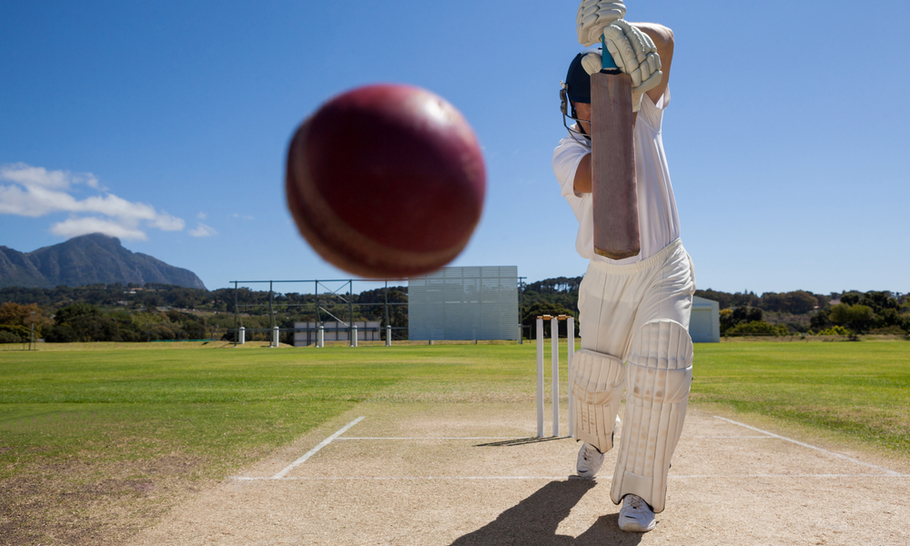Australia's double standards simply aren't cricket

Shutterstock
Remember the test match when an Indian bowler barged into an England player, bowled a delivery from two feet over the line and also bowled a beamer? No? What about the test when England players were accused of dropping jelly beans on the pitch? Yes? Well it’s the same game.
Remember the Oval test where Australia sneaked a draw after having slowed down the over rate so as to lose the series only 3-0 not 4-0? Or do you remember it as the match after which, in the late gloaming at a ground they thought empty, some England players, sat on the outfield, relieved themselves on the grass?
Will we remember this year’s Ashes Lord’s test as the one when Steve Smith resumed his innings despite the spirit of the concussion protocol? Or will we recall it for Smith being booed – as some in Australian cricket hope to make the story?
Smith clearly should not have resumed his innings. A scatter-brained piece of batting ensued, painful to watch. “He should have rested in that time and not put himself back in immediate danger,” says Luke Briggs, the deputy chief executive of brain injury charity Headway. “The reaction time of a batsman facing a 90mph-plus delivery is incredibly small and concussion leads to delayed reaction times so makes that just incredibly dangerous.”
For several years, during the height of the toxicity of their cricket culture, Australians had a reputation for lecturing others as to what is and isn’t proper behaviour. The former seemed to be defined as anything Australia did, however dubious and unethical it might appear. Spinner Nathan Lyon summed up their attitude: “There’s a line. We’ll head-butt the line, but we won’t go over it.”
Of Smith resuming his innings after going off having been felled by a blow to the head, the Australian Cricketers’ Association decreed: “What we witnessed was bravery from an outstanding young man. It should be commended not vilified.”
As a specialist batsman could have replaced Smith – who was on 80 when a 92.4mph Archer delivery hit him and caused him to retire hurt – it appeared more a case of a 30-year-old’s desire for a place on the Lord’s honours board for test centurions, running roughshod over a concussion protocol the Australians had been keen to bring to international cricket.
Steve Smith being booed is mainly pantomime. (In the same match the crowd cheered the ball when it ran towards the boundary and then booed it if it pulled up short.) But the booing is also a condemnation that Smith was the Australian captain whose side blatantly cheated by rubbing the ball with sandpaper.
The year-long bans given by their own cricket board to captain Smith and vice-captain David Warner, reflected belated anguish at the sanctimonious, arrogant, bullying culture of their national team as much as anything to do with sandpaper.
One of Smith’s more squalid transgressions on the spirit of the game had been when he and fellow player, Peter Handscomb, gave a press conference to ridicule an English player, Jonny Bairstow, and his innocent behaviour in a bar. This bullying was eagerly lapped up by the media, for it was not just Smith and his team but the wider Australian cricket culture that had become rancid.
That parts of the Australian cricket media can act as cheerleaders and opposition-bashers, rather than objective reporters, means there can be few curbs on bad behaviour from the direction of the free press.
Why did England players urinating become a story? Because it was made one by the Australian media keen for some Pom-bashing, some of whom were still in the ground late at night only because they had been attending a drinks reception put on by their hosts.
Some Australians are now whinging about one of their players being booed. Darren Lehmann, then the coach of Australia, urged Australian crowds to boo Stuart Broad after Broad had not walked when he edged one – “to slip” as the Australians like to tell you. (In fact he edged it to the wicket-keeper, who fumbled the chance and the ricochet was caught by slip.)
Australians are famous for not walking, but then self-awareness had been absent from their cricket culture for a while.
Broad was indeed subsequently jeered and abused by the Australian crowds; one Australian newspaper even refused to print his name in its match reports. All fair dinkum sport – can’t you lot take a joke? Jeez you Poms.
Some paying spectators boo Smith and Warner when they come out to bat. Fair dinkum sport – can’t you lot take a joke? Jeez you Aussies.
Booing might be unedifying; double standards definitely are.




